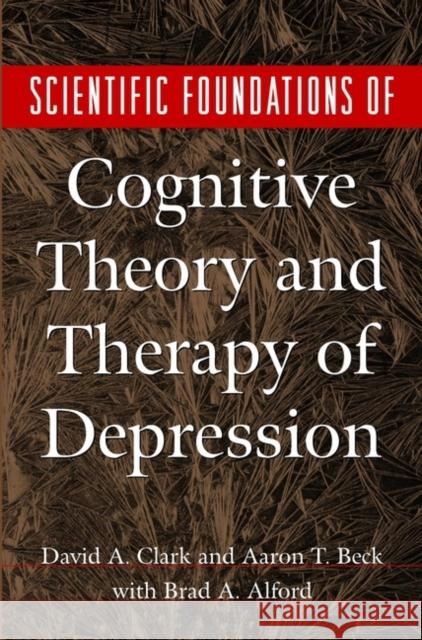Scientific Foundations of Cognitive Theory and Therapy of Depression » książka
Scientific Foundations of Cognitive Theory and Therapy of Depression
ISBN-13: 9780471189701 / Angielski / Twarda / 1999 / 504 str.
Based on decades of theory, research, and practice, this seminal book presents a detailed and comprehensive review, evaluation, and integration of the scientific and empirical research relevant to Aaron T. Beck's cognitive theory and therapy of depression. Since its emergence in the early 1960s, Beck's cognitive perspective has become one of the most influential and well-researched psychological theories of depression. Over 900 scientific and scholarly references are contained in the present volume, providing the most current and exhaustive evaluation of the scientific status of the cognitive theory of depression.
Though the application of cognitive therapy has been well documented in the publication of treatment manuals, the cognitive theory of depression has not been presented in a unified manner until the publication of this book. Coauthored by the father of cognitive therapy, Scientific Foundations of Cognitive Theory and Therapy of Depression offers the most complete and authoritative account of Beck's theory of depression since the publication of Depression: Causes and Treatment in 1967. Through its elaboration of recent theoretical developments in cognitive theory and its review of contemporary cognitive-clinical research, the book represents the current state of the art in cognitive approaches to depression. As a result of its critical examination of cognitive-clinical research and experimental information processing, the authors offer many insights into the future direction for research on the cognitive basis of depression.
The first half of the book focuses on a presentation of the clinical phenomena of depression and the current version of cognitive theory. After outlining important questions that have been raised with the diagnosis of depression, the book then traces the historical development of Beck's cognitive theory and therapy through the 1960s and '70s. It presents the theoretical assumptions of the model and offers a detailed account of the most current version of the cognitive formulation of depression.
The second half of the book provides an in-depth analysis of the empirical status of the descriptive and vulnerability hypotheses of the cognitive model. Drawing on over three decades of research, the book delves into the scientific basis of numerous hypotheses derived from cognitive theory, including negativity, exclusivity, content specificity, primacy, universality, severity/persistence, selective processing, schema activation, primal processing, stability, diathesis-stress, symptom specificity, and differential treatment responsiveness.
"In 1967 the first detailed description of the cognitive theory of depression was published in Depression: Causes and Treatment by one of us, Aaron T. Beck. The basic concepts of the theory laid out in that volume still provide the foundation for the cognitive model 30 years later. As well the first systematic investigations of the theory described in the 1967 volume contributed to a paradigmatic shift in theory, research, and treatment of depression that resulted in a very vigorous and widespread research initiative on the cognitive basis of depression. The present book is intended to provide a comprehensive and critical update of the developments in cognitive theory and research on depression that have occurred since the initial publication in the 1960s."--David A. Clark, from the Preface.











